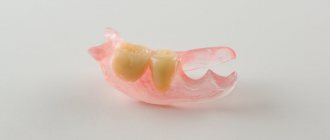- about the author
- Recent publications
Denis Goryachkin
Author in Honey Chest
Expert on bee products. Born and raised in Altai. He lived next to an apiary in the village of Zudilovo, Altai Territory. I have the knowledge to identify the type of honey, as well as distinguish a fake. I can personally advise you on any recipe I write.
Denis Goryachkin recently published (see all)
- Rubbing for intervertebral hernia (birch leaves and corn oil) - 05/24/2021
- Recipe for making Lenten honey cookies - 05.23.2021
- Rub with St. John's wort for intervertebral hernia - 05.23.2021
Propolis and honey are bee products that are recommended for use in the fight against certain ailments. Yellow coating on the tongue and bad breath are manifestations of some diseases that cause discomfort to many people. These health problems are not contagious or fatal. But it can be very difficult to tell a loved one, family member, or work colleague that he or she has bad breath. But this definitely needs to be done, which will draw the attention of people who care about us to their own health.
One of the unpleasant consequences of stomach disease and other ailments can be bad breath, the causes of which will be presented below:
- - dying bacterial cells that release a greenish-yellow sulfur compound into the oral cavity, making breath foul-smelling;
- - inflammation of the gums caused by food debris stuck in the teeth, rotting and eventually releasing a sulfur compound, which can be neutralized by chewing propolis;
- - smoking, which can worsen gum disease and negatively affect oral health;
- - stress that causes drying out of the oral cavity, which creates an environment favorable for the generation and development of microbes. It often manifests itself while taking an exam, flying on an airplane, or at a public speech, so it is advisable to take propolis with you to such events;
- - tartar, which creates gaps between the teeth and gums, gley and accumulates food particles that feed these pathogens;
- — xerostomia or dry mouth is one of the causes of bad breath; it can be a side effect of taking a number of medications, as well as a manifestation of ailments such as bronchitis, pancreatitis;
- - a number of diseases that provoke bad breath: respiratory and viral diseases that stimulate the development of bacteria in the respiratory tract, as well as diabetes mellitus, which provokes a reduced resistance of the oral cavity to infections;
- - fasting, during which a person has minimal food intake, the activity of the salivary glands decreases, and saliva, as is known, counteracts the development of bacteria. In this case, it is especially important to chew propolis;
- — and those people have bad breath whose stomachs are not functioning properly;
- - dehydration of the body, which reduces the level of saliva production, the cleansing abilities of which suppress the generation and development of bacteria.
Principle of installation of the prosthesis
In recent years, dental orthopedics has been actively introducing new materials.
Fragile plastic has been replaced by aesthetic porcelain and ultra-durable zirconium. But the general installation technology remains the same. The basis for prosthetics is always a dilapidated tooth that cannot be restored with a filling. After careful grinding, a pre-made overlay is put on it. If several teeth have been lost, the dentist suggests installing a special prosthesis consisting of several crowns. It is also fixed on the remaining “stumps” or secured with the smallest locks. They are pressed as tightly as possible to the gum, protecting it from the ingress of food debris. But even the highest quality construction has a limited service life and requires periodic examination by a dentist.
When the smell goes away on its own
In some cases, no special treatment is required, and sometimes only dynamic observation is sufficient. In what cases does a person’s breath smell unpleasant, or in some special way? Here are some classic examples. But we immediately omit from this list the obvious fact of the smell that comes from a smoker of tobacco and other mixtures. Naturally, this smell is clear to everyone and quickly identified, and if you give up this bad habit, the whole problem will disappear by itself. The breath may smell special if you are hungry or starving. This is not at all due to the consumption of stored energy in the form of animal starch glycogen, which again turns into glucose in the first two days after the start of fasting. There will be no bad breath here, since the long-chain carbohydrate is consumed, which is simply “cut” into short glucose disaccharide molecules.
If a person fasts longer, which is quite possible with fasting-dietary therapy, then, starting from day 3-4, he smells of either acetone or the smell of rotten apples. This is due to the fact that the body is extremely reluctant to switch to fat utilization, and when it begins, under-oxidized lipolysis products, called “ketone bodies,” first accumulate in the blood. These are AUA, or acetoacetic acid, PHA, or oxaloacetic acid, and their analogs.
The accumulation of these products leads to blood acidification, a shift in pH to the acidic side, which leads to short-term metabolic acidosis. This phase of fasting coincides with a deterioration in health, and soon passes as soon as ketone bodies accumulate in the blood, the liver begins to utilize them. This process of beginning the utilization of ketone bodies coincides with the end of the acidotic crisis, after which fat reserves begin to be used up “as planned,” and the condition of the starving person improves significantly.
By the way, the same smell of rotten apples or acetone sometimes comes from patients with severe diabetes. This bad breath indicates a serious deterioration in the condition, and an urgent blood test for sugar, acetone, basic biochemical indicators, electrolytes, and an urgent consultation with an endocrinologist, or calling an ambulance at home, is necessary.
In women, the odor from the mouth changes due to regular fluctuations in the concentration of the hormone in the blood plasma, due to fluctuations in the ovarian-menstrual cycle. Also, taking certain medications, primarily antibiotics, corticosteroid hormones and antifungal drugs, can also lead to their excretion from the body in the lungs, or increased concentrations in saliva.
We can also mention the smell of fumes that reeks from a person in a state of hangover. Acetaldehyde, as an intermediate product of undissolved ethyl alcohol, is to blame for this. As soon as the liver can finally process acetaldehyde into carbon dioxide and water, the unpleasant odor will disappear on its own.
Causes of “bad” odor
Most patients quickly get used to the installed prosthesis and pay less attention to hygiene. But this is the first reason why the smell of rot appears from under the prosthesis. Crowns should be thoroughly cleaned at least twice daily. This involves using high quality soft brushes, non-abrasive toothpaste and floss to remove trapped dietary fibres. After a snack, you should use a rinse solution with natural ingredients.
If you are negligent about your oral health, the denture will begin to become covered with dark spots from plaque. It accumulates on artificial enamel and turns into hard growths, creating an ideal environment for the proliferation of pathogenic microflora. Other equally relevant reasons for which there is an odor between the gum and the denture:
- The tooth under the crown was not properly treated and begins to rot and collapse. This often occurs if an inexperienced specialist did not depulp the canals or poorly sealed the latter.
- Alloys in the composition of a metal or metal-ceramic prosthesis react with saliva and activate the process of decomposition of the enamel on the stump. Poor quality materials used for prosthetics often themselves cause further damage to teeth, irritate the mucous membrane and provoke gingivitis.
- Delamination of the cement that secured the structure. The prosthesis moves away from the enamel and microcracks form. They accumulate a huge amount of bacteria mixed with particles of food debris.
And yet, 9 out of 10 reasons for the appearance of an unpleasant smell of rot from under the denture is the incorrect structure of the dental bridge itself. This is often due to the low professionalism of the technician, who takes impressions ineptly or violates the technology when working with polymers. Saving his time, he poorly seals all joints and does not adjust the shape to the gum. Constant pressure when chewing weakens the fragile structure and damages it within a few months.
Another common mistake is that the doctor does not install a temporary implant, which should protect damaged teeth and gums from inflammation. If you ignore this rule, after a few months of wear, a specific smell of rotting begins to be heard from under the denture, indicating the re-development of caries.
Symptoms of the disease
Often patients do not see the difference between periodontitis and periodontal disease, but these terms have different meanings. If a person has periodontitis, it is accompanied by an active inflammatory reaction, and the gums swell and bleed.
With periodontal disease, wedge-shaped defects appear on the roots of the teeth. In this case, the gums are dense and anemic, and there is no tooth mobility. Sores, blisters and ulcers may form, and the root zones of the teeth are exposed.
Symptoms at the initial stage of the disease are not pronounced. When brushing your teeth, your gums sometimes bleed, and viscous saliva and plaque may appear. If no measures are taken in time, the gums begin to become inflamed (sometimes to the point of purulent discharge), bad breath appears, and teeth become wobbly.
Attention! In advanced cases, microbial allergies, abscesses and fistulas on the gums are possible.
Poor hygiene as a cause of odor
If a person’s breath has acquired a specific “putrid” hue, it is necessary to examine the crown. Poor cleaning and violation of the rules for caring for artificial teeth often leads to complications in the form of a “stale” smell. Dentists warn that they need to be given the same attention as a healthy jaw:
- use only special toothpastes or gels that will not scratch ceramics or zirconium;
- carefully use electric brushes that injure the mucous membranes;
- Massage the gums daily with your finger to speed up the flow of nutrients to the periodontium;
- purchase miniature dental brushes that perfectly clean stubborn plaque.
The patient should remember to see the dentist every 6-8 months. The doctor performs professional cleaning, removes darkening and plaque with ultrasound. He checks the tightness and adjusts the position of the prosthesis. This not only extends the life of the crowns, but also gets rid of pathogenic plaque.
How to use bay leaves to get rid of fumes and treat alcoholism
The main component in the plant that provides a therapeutic effect is oil. If it is necessary to get rid of fumes, its properties are used.
To influence the body in case of alcohol poisoning, alcohol tincture is most often used. Other remedies can be prepared, but the infusion is considered more effective. It is capable of causing a persistent aversion to alcoholic beverages in the patient, but it cannot be used in all situations.
The decoction has a slightly weaker effect, but it can be added to a drink or food without it being noticeable.
Smell from under the denture due to inflammation
Most patients ignore regular visits to a specialist. The denture gradually becomes deformed, and there is a gap between it and the tooth. It accumulates saliva mixed with food debris, which turns into a basis for bacteria and leads to gingivitis. They provoke severe redness in the area near the artificial enamel. The following signs are typical for such a complication:
- there is a specific taste and smell in the mouth, which cleaning muffles only temporarily;
- the unpleasant “aroma” intensifies after sleep;
- Dentures and gums underneath smell bad;
- the mucous membrane swells greatly, aches and burns;
- blood is observed in saliva or when spitting;
- I am worried about attacks of pain, acute reactions to hot or cold foods.
When a diagnosis of gingivitis or periodontal disease is made, treatment begins with thorough rinsing with antiseptics. It is carried out at least 3 times a day, using the drug Miramistin, Chlorhexidine, Stomatofit or Rotocan. For oozing wounds, you can treat painful areas with an oil solution of Chlorophyllipt. The procedure should be the final stage of cleaning teeth and dentures in the morning and evening; it is repeated after meals. An antibiotic is selected for the patient to relieve the inflammatory process and prevent complications.
Pharmacy products: sprays, rinses
In any pharmacy in Russia, the patient is presented with a huge selection of pharmacological remedies for bad breath. The most popular are mouth rinses and breath freshening sprays. It is recommended to give preference to the preoral sprays listed below:
Lakalut is a mouth freshener with a variety of flavors. Does not irritate the oral mucosa, freshens breath for 24 hours; Glister is the classic and most popular remedy for halitosis. This spray with a bright menthol flavor is available in compact miniature cans that can easily fit even into a handbag; Mintorol - mint or watermelon spray with the longest lasting effect; Antiangin is an aerosol antiseptic. This remedy not only eliminates bad breath, but also soothes a sore throat; Forest Balm is a spray based on medicinal herbs, used as a mouth freshener and a light antiseptic.
In turn, the most effective preoral rinse solutions in terms of eliminating bad breath are listed below:
Lakalut is a red solution, a measuring cup is sold complete with the container. The product is suitable for eliminating bad breath and whitening teeth; Stomatofit is a mouth rinse that helps with halitosis caused by stomatitis and inflammatory processes in the gums. In this case, not only the individual symptom is stopped, but also the disease itself; Listerine is a popular remedy for bad breath with a disinfecting effect; Colgate-Plax is a high-quality antiseptic that relieves swelling of the mucous membrane and eliminates unpleasant odor.
Sprays and mouth rinses in case of halitosis are used 3-4 times a day after meals. It is not recommended to exceed the daily dose of these drugs, as it can cause irritation of the oral mucosa and, as a result, the opposite effect to the expected one.
How to eliminate odor from under a denture?
It should be remembered that this is only a symptom that indicates problems with teeth or gums. If professional cleaning does not help, the dentist removes the denture and checks the condition of the stump underneath. If there are any signs of rotting, the affected stump must be removed. Only after complete healing can a new structure or bridge be made.
If the process has gone too far, a purulent cyst or painful abscess forms deep in the periodontium. The sac is embedded in the root, accumulates a large amount of inflammatory fluid and puts pressure on the nerve roots. In addition to the unpleasant odor, the person feels excruciating pain, cannot chew or bite, and sleep is disturbed. The dentist opens the tooth and carefully removes the suppuration, trying to preserve the pulp. After this, the prosthesis can be reattached.
If there is a persistent unpleasant odor from under the denture, it is recommended to use folk recipes based on herbal extracts: chamomile, sage, yarrow, bay leaf, St. John's wort. An anti-inflammatory effect is provided by tincture of propolis or calendula. If there is a wound under the structure that hurts and oozes, apply a fresh aloe leaf, a compress with Cholisal or Levomekol ointment.
The appearance of an unpleasant “aroma”
Despite regularly brushing their teeth, many people cannot get rid of bad breath. Temperature and humidity in the human oral cavity are an ideal environment for the development of pathogenic microbes. They begin to develop faster because of this. that bacterial waste products accumulate between the teeth. To get rid of them, just brush your teeth thoroughly.
- Another reason is halitosis, which occurs under the influence of various factors. For example, improper hygiene leads to the accumulation of food debris and their subsequent decomposition on the gums and teeth.
- If your mouth is often dry, this can also cause an unpleasant odor.
- Smoking cannot coexist with fresh breath, even if its traces are carefully masked.
- But the main cause of bad breath still lies in acute and chronic dental diseases: stomatitis, gingivitis, periodontitis, periostitis. The source of gum odor in oral diseases is the accompanying symptom: blood clots in which harmful bacteria are actively developing.
Systemic diseases of the body can also contribute. These are diseases of the liver, kidneys and other organs in a chronic form.









